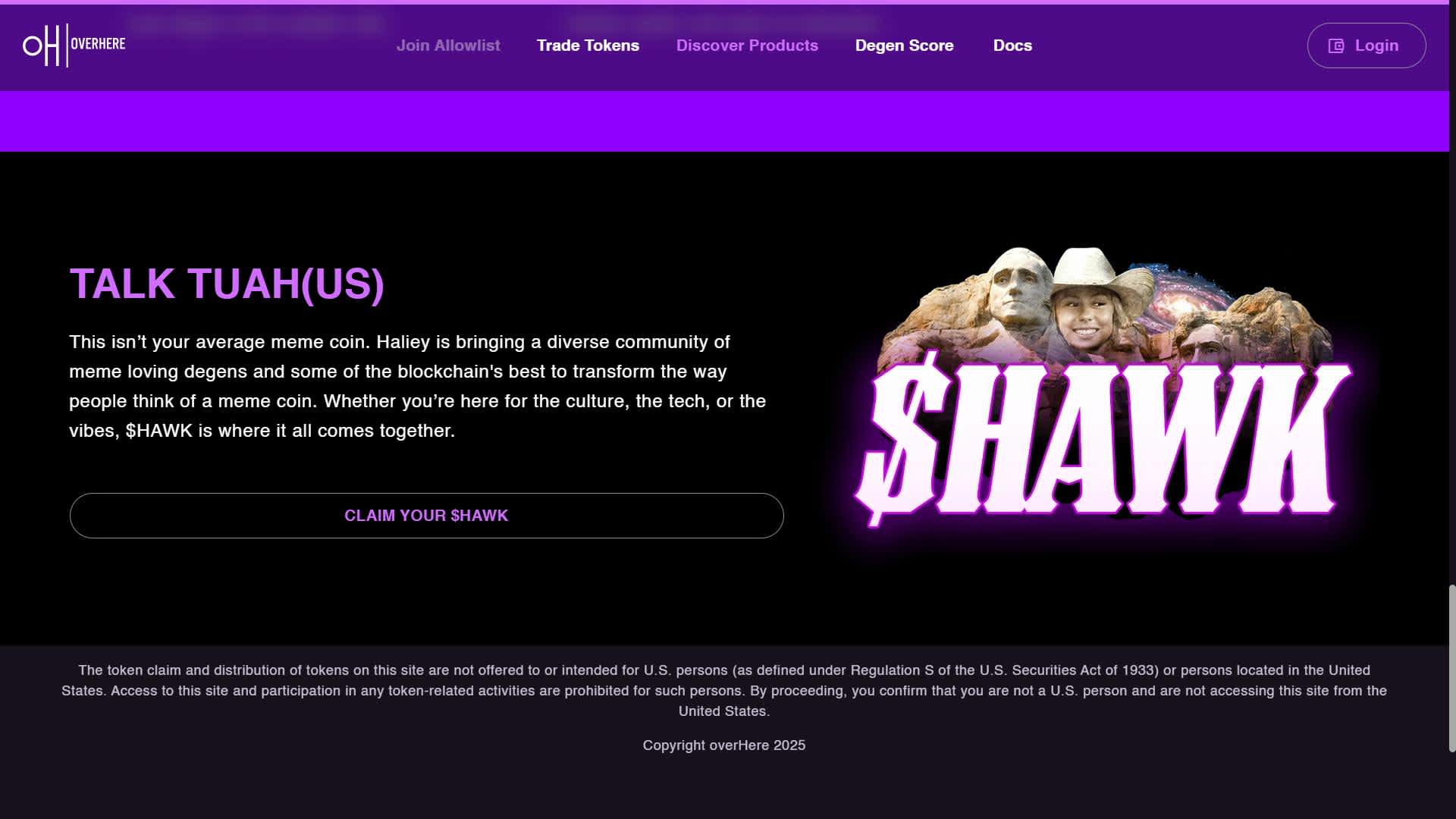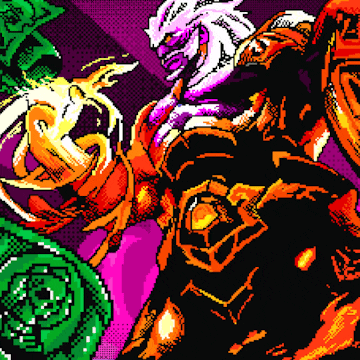Hawk Tuah Girl Crypto Coin: From Fame to Fallout in the Crypto World
In December 2024, internet personality Haliey Welch, aka the "Hawk Tuah girl" from the viral TikTok, decided to dabble in crypto, launching the aptly-named meme coin, $HAWK.
However, the project quickly spiraled into controversy, leading to significant financial losses for investors and raising concerns about the legitimacy of influencer-backed crypto ventures. Let's get into the nitty-gritty of what happened.

The Birth of the Hawk Tuah Girl Crypto Coin
Influencer Haliey Welch, popularly known as the "Hawk Tuah Girl", became an overnight sensation following a viral interview describing how she would “hawk tuah” a man. Her internet stardom quickly translated into millions of social media followers.
Capitalizing on this fame, Welch introduced a meme coin: Hawk Tuah Girl Crypto Coin ($HAWK), on December 5, 2024 to link to her viral meme. The goal was to be a "long-term coin" that would "change the way everybody thought about crypto." But things didn't pan out that way.
The Rise of $HAWK
The $HAWK coin launched on the Solana blockchain, a common choice for meme coins due to its fast and low-cost transactions. The project was reportedly promoted through her podcast, Talk Tuah, and quickly gained attention within the broader crypto community.
At launch, the coin saw an explosive surge in value. Within hours, $HAWK's market cap soared to nearly $500 million, reflecting a speculative frenzy among investors eager to capitalize on the hype.

Reports suggested that Welch’s influence played a major role in the coin’s success, as many public figure-backed crypto projects experience rapid early growth due to their massive social media reach, as seen with the $TRUMP and $MELANIA meme coins.
The Sudden Collapse: Investors Lose Money
Despite its meteoric rise, $HAWK's value plummeted by over 90% in less than a day, dropping from a peak market cap of $500 million to $41.8 million.
This rapid decline bore the hallmarks of a classic pump-and-dump scheme, where early investors cash out at inflated prices, leaving others with significant losses. According to Cointelegraph, a single wallet bought nearly 20% of $HAWK's supply and flipped it for over a $1.3 million profit that same day.
Many investors, including YouTube cryptocurrency investigator Coffeezilla, accused Welch and those behind the coin of orchestrating a cash grab, which is commonplace with many meme coins in the crypto space. Blockchain analysts also noted that a few wallets held large amounts of tokens, fueling speculation of market manipulation.
To make matters worse, early investors who suffered losses began accusing Welch and her team of illegally selling unregistered crypto assets.
Did Haliey Welch Profit from the Coin?
One of the biggest questions surrounding the Hawk Tuah Girl Crypto Coin scandal is: Did Welch profit from $HAWK? She has publicly denied benefiting from the project, stating she held " absolutely no tokens whatsoever" at launch.
However, skeptics argue that even if Welch didn’t directly profit, she may have gained indirectly through promotions and increased exposure.
Following the backlash, Welch initially remained silent. However, on December 20, 2024, she finally addressed the controversy in a statement on X (formerly Twitter) after weeks of radio silence.
She explained she is taking the situation "extremely seriously" and expressed commitment to resolving the matter. Welch has since returned to her Talk Tuah podcast, stating "[she] feels really bad for all the people that got affected by it,” and that her crypto project didn't go the way she had planned.
According to sources, Welch has pledged full cooperation with legal teams representing the individuals impacted, stating she is working with authorities to resolve the situation and hold the responsible parties accountable.
Allegations and Legal Actions
The sudden collapse of $HAWK triggered widespread fraud allegations. Critics accused Haliey Welch and her team of orchestrating a pump-and-dump scheme, with some suggesting insider trading practices. Cryptocurrency journalist Stephen Findeisen (Coffeezilla) also confronted Welch and Doc Hollywood, accusing them of scamming fans through the $HAWK launch.
In response, a class-action lawsuit was filed in the United States District Court for the Eastern District of New York, alleging that the creators of $HAWK illegally promoted and sold an unregistered security, violating U.S. securities laws.
Entities named in the lawsuit included: Tuah The Moon Foundation, which launched the coin, along with affiliated parties such as overHere Ltd. (a Cayman Islands-registered company), its founder Clinton So, and influencer Alex Larson Schultz. Interestingly, Welch was not named as a defendant.
The investors are represented by Burwick Law, a firm known for handling high-profile crypto cases. Their goal is to uncover the truth, hold the responsible parties accountable, and seek financial recovery for affected investors.
Conclusion
The $HAWK incident highlights the risks of influencer-backed cryptocurrencies, especially meme coins driven by hype rather than intrinsic value.
Crypto experts urge investors to exercise caution and conduct thorough research before engaging in speculative assets. This case also underscores the need for stricter regulatory oversight to protect investors from similar schemes.
With $HAWK at the center of controversy, it serves as a cautionary tale about the dangers of influencer-endorsed crypto projects and the importance of due diligence before investing in digital assets.







